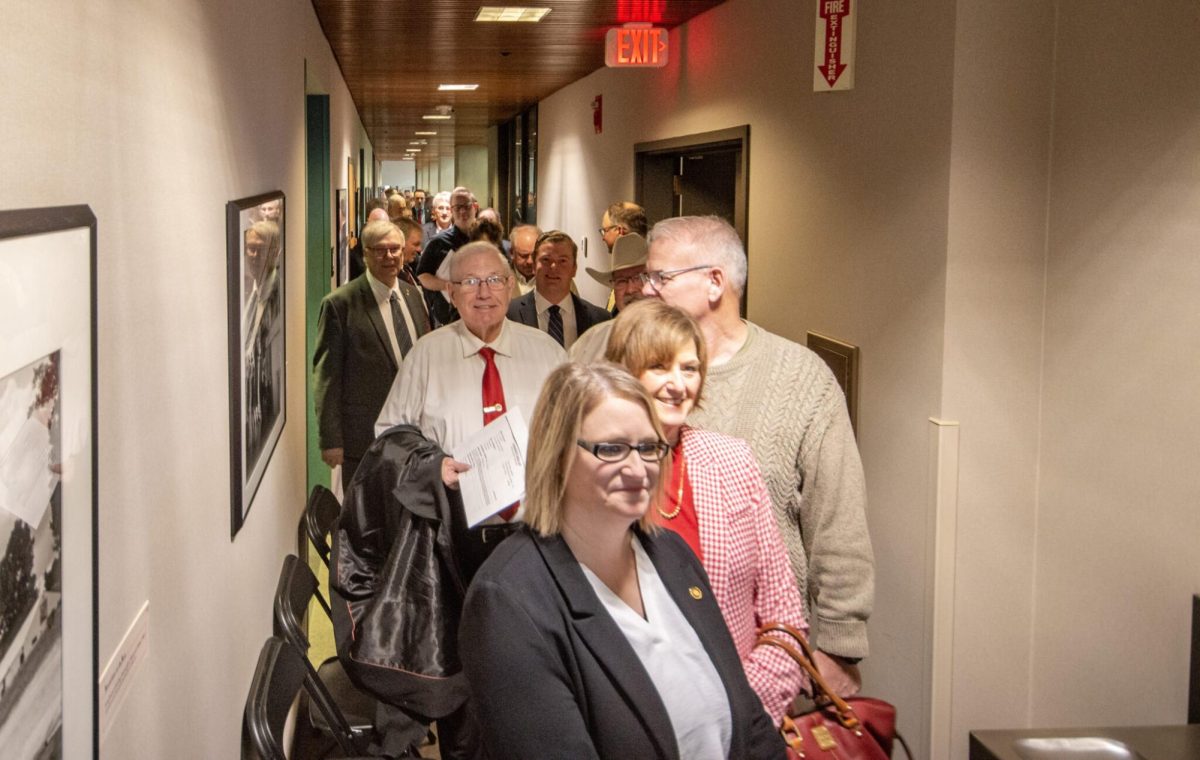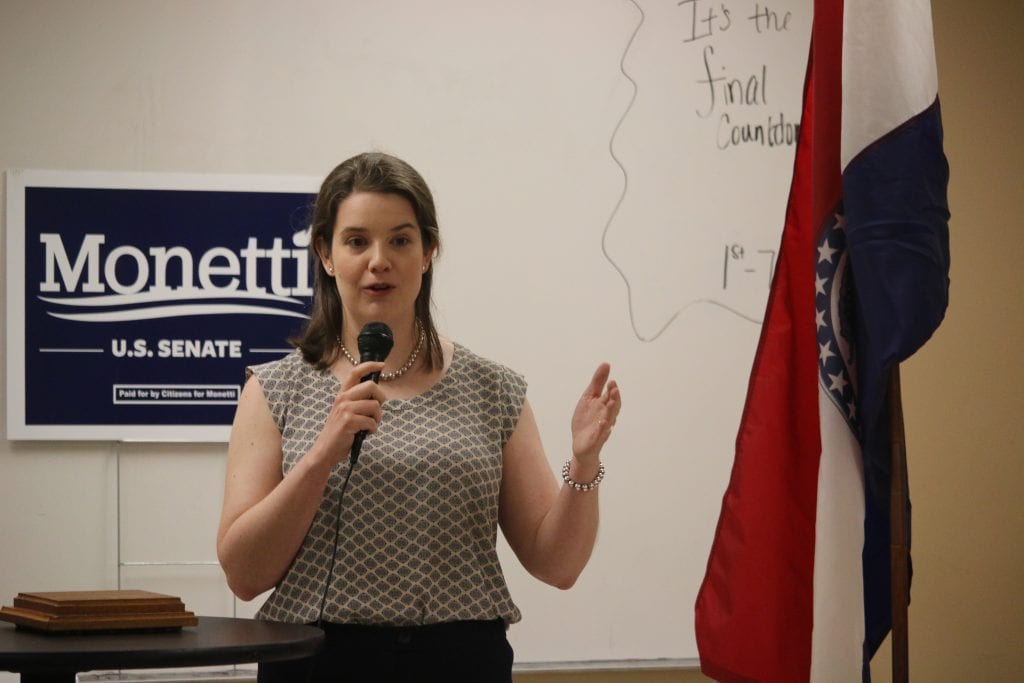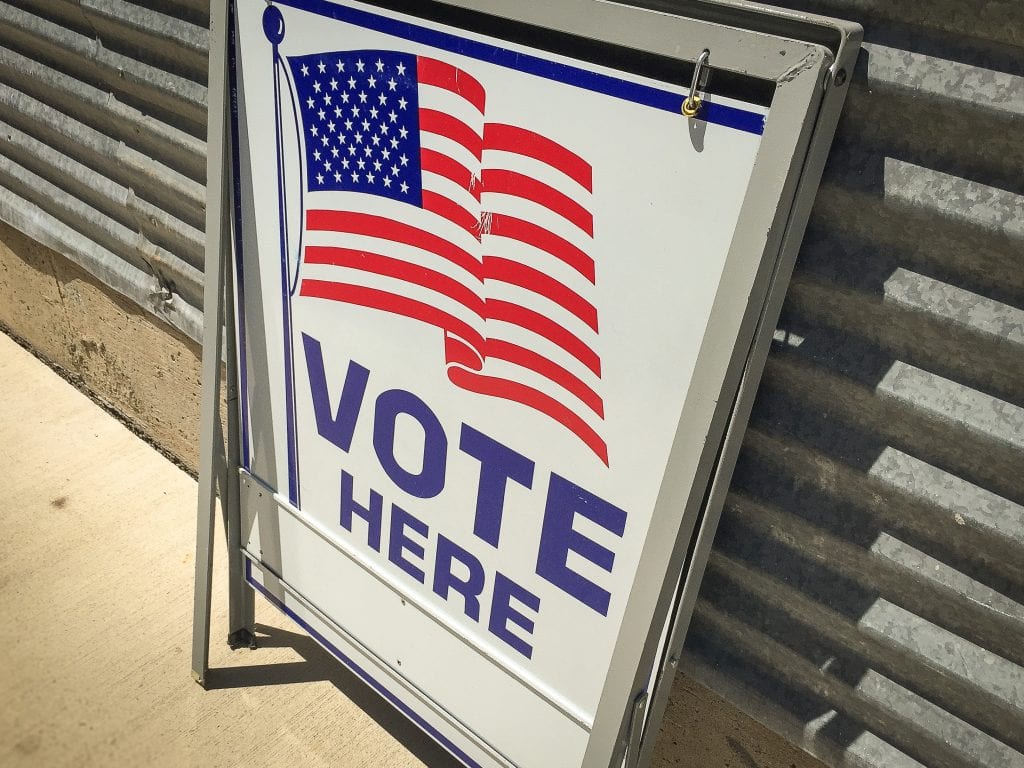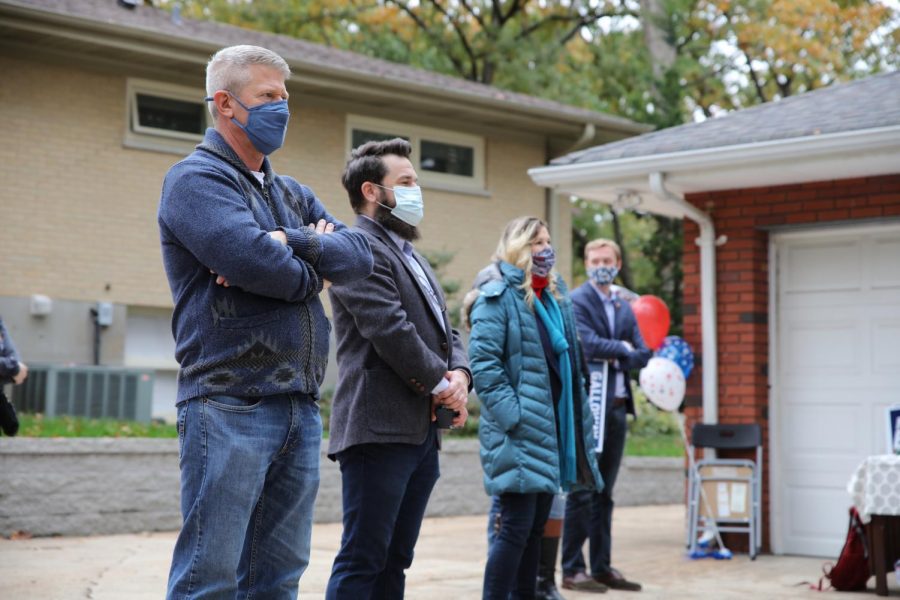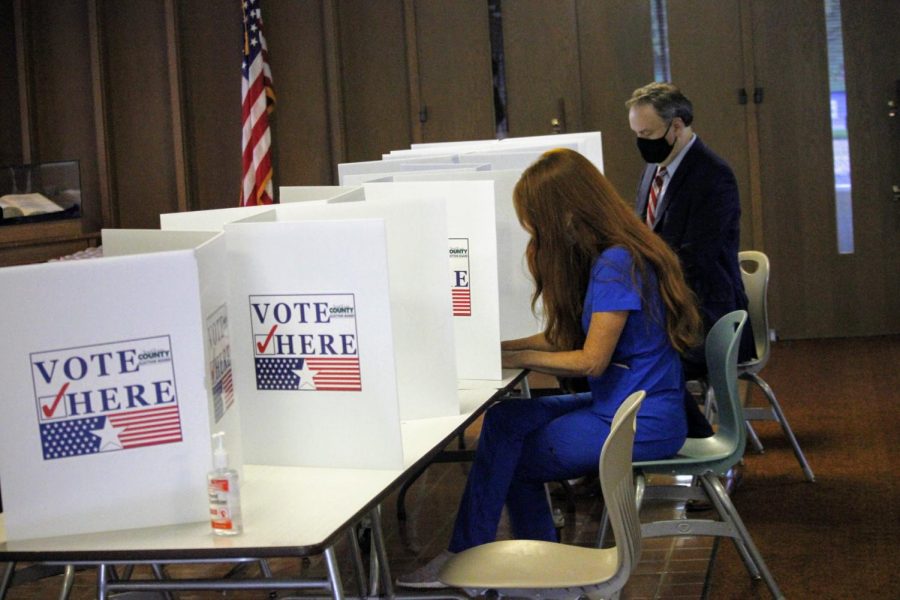For the Call
Splits between parties and branches of government make it likely that the state Legislature will need a special session this summer to approve a budget for next year and to consider nursing home reform.
Gov. Bob Holden announced last week he would veto the only budget proposal with enough votes for legislative approval. Missouri’s Constitution requires budget approval by May 9.
The state Senate last week passed 13 bud-get bills and sent them back to the House.
A conference committee comprised of House and Senate members is attempting to negotiate differences between the Senate and House versions before the bills are sent to Holden.
The budget bills for the coming fiscal year were approved in the Republican-controlled Senate on largely partisan votes.
Senate leader Peter Kinder, R-Cape Girardeau, defended the Senate budget in a news release.
“This is a responsible, realistic funding plan balanced on real revenue projections,” Kinder stated. “It is an on-time budget that is on-target for Missouri’s economic reality.”
The Senate last week approved 13 budget bills and sent them to conference committees that will attempt to reconcile versions of the budget passed by both legislative bodies.
Senate approval translated into Republican approval. Democrats opposed the budget.
“This is a responsible, realistic funding plan balanced on real revenue projections,” said Senate leader Peter Kinder, R-Cape Girardeau. “It is an on-time budget that is on-target for Missouri’s economic reality.”
The $18.8 billion budget would allocate more than $4.5 billion for public schools and more than $1 billion for public colleges and universities. Transportation programs would receive $1.7 billion, agriculture programs $34 million, and natural resources would get $331 million. Conservation would receive $127 million and economic development programs would receive $274 million under the Senate passed budget.
Public Safety would receive $349 million, while the Department of Social Services would get $5.6 billion. Mental health programs would obtain $943 million and the state’s judiciary would receive $158 million under the budget sent to the House.
Democrats said smaller, poorer districts and inner-city schools are hit the hardest by the Republican budget.
John Cary, Superintendent of the Mehlville School District, told the Call that based upon a simulation provided by the Department of Elementary and Secondary Education that the school district could lose approximately $300,000.
“All cuts in revenue provided by the state to the Mehlville School District are always problematic, especially in an economic downturn,” Cary said. “We will have to evaluate our total budget to determine if services must be cut off if the current budget cannot cover the cuts.”
Kinder’s compromise nursing home reform legislation appears headed for doom in the House.
Senate Bill 556 would increase oversight and inspections of nursing home facilities, shield workers from retribution for reporting suspicions of abuse or neglect to regulators and set large fines for nursing homes that endanger patients’ lives.
“The bill provides safeguards for home residents without over-regulating the nursing home industry and driving homes out of business,” said Sen. Anita Yeckel, R-Sunset Hills.
Senate Bill 299, co-sponsored by Yeckel, was passed by the House last week. Rep. Jim Avery, R-Crestwood, Rep. Walt Bivins, R-Oakville, and Rep. Jim Lembke, R-Lemay, supported the bill that requires the state Budget Director to develop and implement a performance-based budgeting system.
Democrats failed in their attempt to require that each appropriation include an exact appropriated dollar amount for each program.
Rep. Sue Schoemehl, D-Oakville, Rep. Patricia “Pat” Yaeger, D-Lemay, and Rep. Michael Vogt, D-Affton, voted against the bill that passed in the House 125-34.
Vogt told the Call that the House should deal with the bigger picture first, namely the budget. “I shall vote ‘no’ on all secondary budget issues until we see the big picture and cure the major problem facing this assembly, the budget.”















